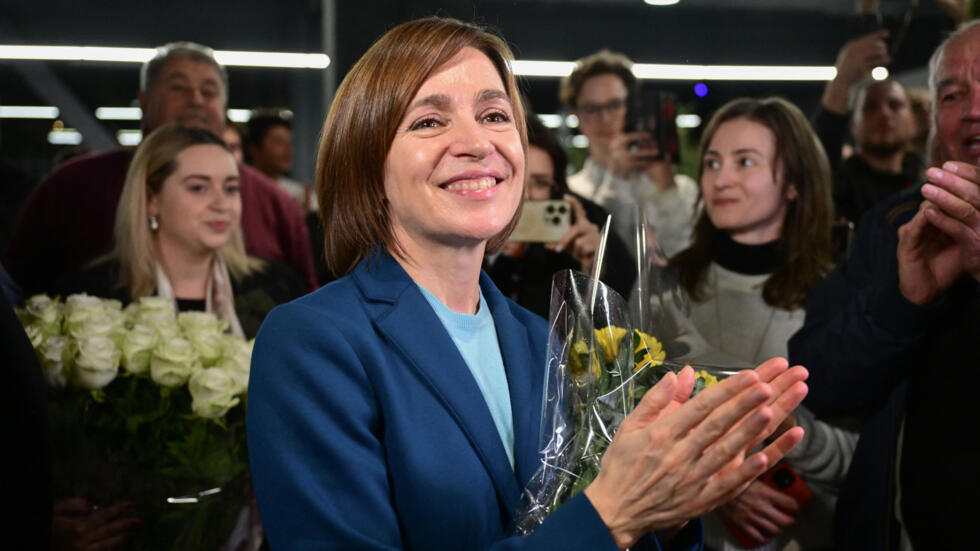Pro-Euromaidan leader Maia Sandu’s newly won presidency in Moldova is at the forefront of European integration and reform, a country often characterized as a battleground between the former Soviet Union and the influence of the European Union. Former President Maia Sandu declared victory over a highly anticipated election that signifies a significant turn for Moldova toward European Integration.
Sandu’s Party of Action and Solidarity, PAS, won a clear majority, giving her the mandate to push forward her pro-European agenda. Known for her commitment to anti-corruption reforms and economic modernization, Sandu addressed supporters in the capital, Chisinau, promising to bring Moldova closer to the EU while keeping stability and economic growth on track. The people of Moldova have chosen a European future, and together we will work to make this a reality,” she proclaimed to an enthusiastic crowd of supporters.(More)
Accusations of Russian Meddling with the Election Process
However, claims of Russian meddling to influence votes have marred the success. Moldovan authorities reported unusual events in the final stages before voting began online misinformation campaigns to suspicious financial transactions that concerned government watchdogs. The OSCE observers mentioned significant foreign pressure efforts, primarily through the media and social media platforms associated with Moscow, which targeted the pro-European position.
Moldova’s Intelligence and Security Service said it is investigating several allegations of interference in the country’s election, allegedly coming from Russia. However, Russian officials dismiss the allegations as “groundless” and a manifestation of an anti-Russian attitude. For many years, Moscow’s influence in Moldova had been deep, especially in Moldova’s separatist region of Transnistria, and past political leaders were well-known for their pro-Russian positions.
Balancing Moldova’s Pro-European Aspirations and Russian Influence
The May elections provided new hope for President-elect Sandu for some people in the country who supported full integration into the European Union and more significant Western associations. However, this increased apprehensions of a sensitive country in geopolitics.
Sandu has agreed to support democratic institutions and efforts to reduce dependency on Russia’s energy supply but strengthen economic interests connected with the European Union. On the other hand, reconciling Moldova’s long and deep ties with Europe’s aspirations is challenging in reality, primarily when supported Russian rebels are present in regions such as Transnistria or a large part of people across Moldova support pro-Russia.
She vowed that her government would work on national security but still respect Moldova’s sovereignty and maintain diplomatic ties with Moscow. “We seek peace and prosperity for Moldova,” she said in her victory speech, “and we will work diplomatically to ensure good relations with all nations.”
EU Leaders Extend Support as Moldova Looks to Strengthen Ties
European leaders have been congratulating Sandu, with officials from the European Union’s headquarters in Brussels and neighboring Romania welcoming Monday’s election outcome as “a win for democracy.” The European Commission president said that she is optimistic about the country’s future, as it now stands ready to work in partnership with Moldova.
The success of Sandu points to the choice of deepening integration in Europe. However, analysts have said there will be complications and considerable opposition from diverse internal and external parties. Moldova’s course would determine the outcome of this route toward the EU. In this administration’s push toward strengthening relationships with the EU, there is an inconvenient Russian factor to tango with. At the same time, promises that bring economic reforms and governance into the basket have to be delivered upon.
The pro-European leader at the helm will now chart a future for Moldova, balancing East and West in a delicate and determined push into stability and growth.















